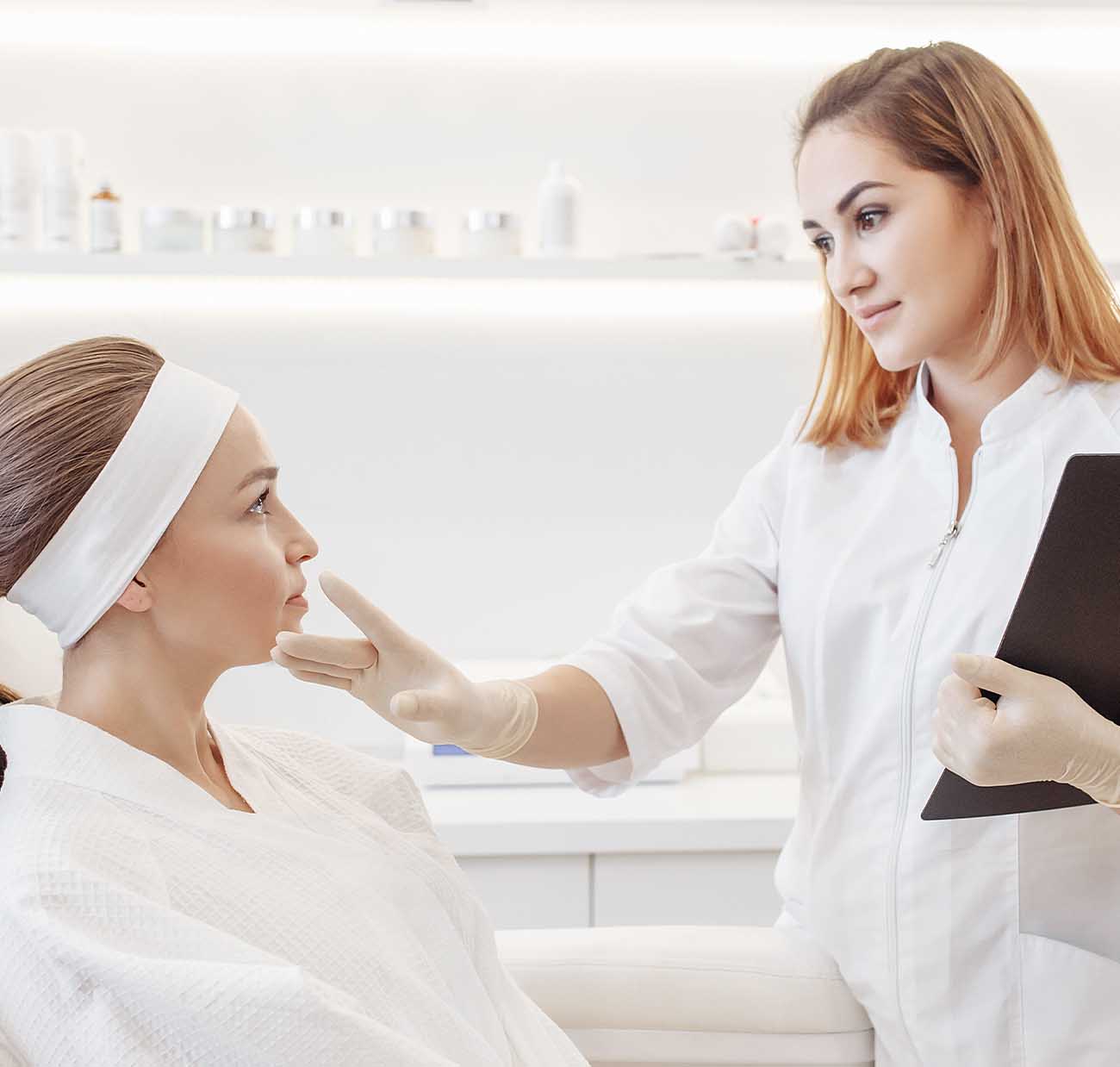Skin & Stress
Stress sets off several physiological reactions in the body that can affect the skin. It causes the release of hormones like cortisol that thicken hair follicle cells and increase oil production – the perfect recipe for acne.
Stress can also trigger neuropeptides, chemicals unleashed from nerve endings in the skin that leave it red or itchy, and encourage T cells (the skin’s infection fighters) to overreact, making the skin turn over too quickly and flake or scale. Then there are the blood vessels: Under stress they become more reactive, either clamping shut (so skin looks pale or sallow) or opening too widely (causing the skin to flush).
Depending on your genetic predispositions, it’s not a pimple but an eczema outbreak. A psoriasis flare-up. A bout of rosacea. A dehydrated, dull, oily or even older-looking appearance.


Consultation
- Detailed history of your skin concern
- Total skin examination
- Holistic assessment of your health
- Diagnosis
- Discussion of treatment options
- Personalised treatment plan
- Treatment
FAQs
Stress sets off several physiological reactions in the body that can affect the skin. It causes the release of hormones like cortisol that thicken hair follicle cells and increase oil production – the perfect recipe for acne.
See answer

Stress can trigger neuropeptides, chemicals unleashed from nerve endings in the skin that leave it red or itchy, and encourage T cells (the skin’s infection fighters) to overreact, making the skin turn over too quickly and flake or scale.
See answer

Depending on your genetic predispositions, it’s not a pimple but an eczema outbreak. A psoriasis flare-up. A bout of rosacea. A dehydrated, dull, oily or even older-looking appearance.
See answer



